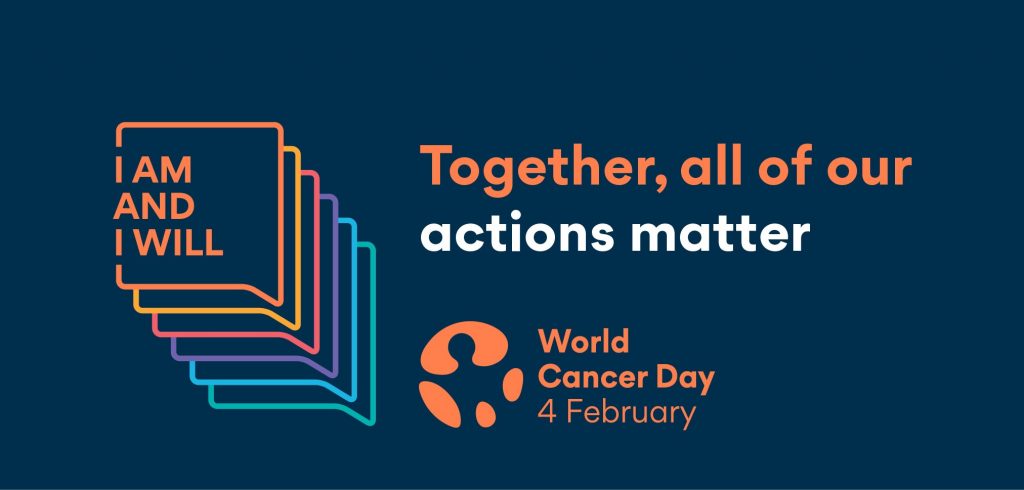World Cancer Day: Can STIs cause cancer?
Today is World Cancer Day – an international day which aims to raise awareness of cancer and encourage prevention, detection and treatment. This year’s theme ‘I Am and I Will’ focuses on how, together, we can commit to act towards making a change. As specialists in sexual health, Better2Know explains which sexually transmitted infections pose a cancer risk.
The reality is that each and every one of us knows of at least one person who has battled with cancer. Cancer is a global challenge – one which needs as much support and understanding across the world as possible.
World Cancer Day aims to raise awareness and inspire action for a cancer-free future. This year’s theme ‘I Am and I Will’ emphasises the power of committing to act in reducing the global impact of cancer.
The good news is that we know more about cancer than ever before. It is estimated that, through strategies focused on prevention, early detection and treatment, up to 3.7 million lives could be saved each year. It is vital that we all use our voices to campaign for change.

The Facts
Cancer is the second-leading cause of death globally. Statistics show that around 10 million people die from cancer each year.
It is suggested that over a third of cancer cases are preventable, and another third can be cured with early detection and treatment.
Cancers caused by infections (both sexually transmitted and non-sexually transmitted) are responsible for around 2.2 million deaths each year.
Can an STI lead to cancer?
Most sexually transmitted infections are not cancerous and can be easily treated with medication. However, several viruses which can be caught through sexual contact and intercourse can develop into cancer.
Human Papillomavirus (HPV)
HPV can lead to several cancers, mainly cervical cancer, as well as cancers of the vagina, vulva, penis and anus. There are over 100 types of HPV, of which 14 types are classified as high-risk in leading to the development of abnormal cells. Two of these high-risk HPVs – types 16 and 18 – cause 70% of cervical cancer cases.
HPV can be passed through sex and skin-on-skin contact. Research shows that HPV transmitted through oral sex can develop into cancer in the mouth, throat, lips, tongue and larynx. Whilst drinking alcohol and smoking are the main risk factors for cancers in the mouth and throat, HPV-related cancers cause around 1 in 4 mouth cancers and 1 in 3 throat cancers.
Hepatitis
Hepatitis is a viral infection of the liver which can lead to liver cancer. Around 20% of Hepatitis B infections become chronic, potentially causing cirrhosis of the liver, liver cancer or liver failure. 75% of Hepatitis C cases become chronic. Hepatitis C is a major cause of liver cancer in these cases.
HIV
HIV damages the immune system and kills T-cells. T-cells help to get rid of infections, including cancer-causing viruses such as HPV. Therefore, when T-cells are under attack, this can weaken a person’s ability to fight off an infection, causing cells to multiple and potentially become cancerous.
In the UK, 1 in 1,000 cases of cancer are caused by HIV. Cancers linked to HIV include lymphomas (blood cancers), cervical cancer, anal cancer, eye cancer and Kaposi sarcoma.
Are you worried about your sexual health?
As a leading global provider of sexual health testing services, Better2Know recognises our responsibility in providing the most advanced and up-to-date testing, services and information for our patients across the world.
If you are concerned about your sexual health, Better2Know’s dedicated advisors are here to help and support you. We provide testing for HIV, Hepatitis B, Hepatitis C, and HPV, amongst many other infections. Get in touch by phoning our 24/7 team or send a message using our live chat.
Sources
[1] World Health Organisation: Human papillomavirus (HPV) and cervical cancer
[2] World Cancer Day: What is cancer?
[3] World Health Organization: Hepatitis B
[4] World Health Organization: Hepatitis C
[5] Cancer Research UK: World Cancer Day 2021
[6] Cancer Research UK: Does HIV cause cancer?
Categories
- Awards
- Bacterial Vaginosis
- Blood Tests
- Cardiovascular Health
- Cervical Cancer
- Chlamydia
- Condoms
- Covid-19
- Gardnerella
- Genital Warts
- Gonorrhoea
- Health and Wellness
- Hepatitis A
- Hepatitis B
- Hepatitis C
- Herpes
- HIV
- HIV (AIDS)
- Home Testing
- HPV
- Instant Testing
- MSM
- Mycoplasma
- News
- Non-Specific Urethritis
- PAP Smear
- Pre-Pregnancy
- Sexual Health
- STD Symptoms
- STD Tests and Screens
- STI Transmission
- Stigma
- STIs
- Swab Tests
- Syphilis
- Trichomonas
- Ureaplasma
- WSW
- Zika
